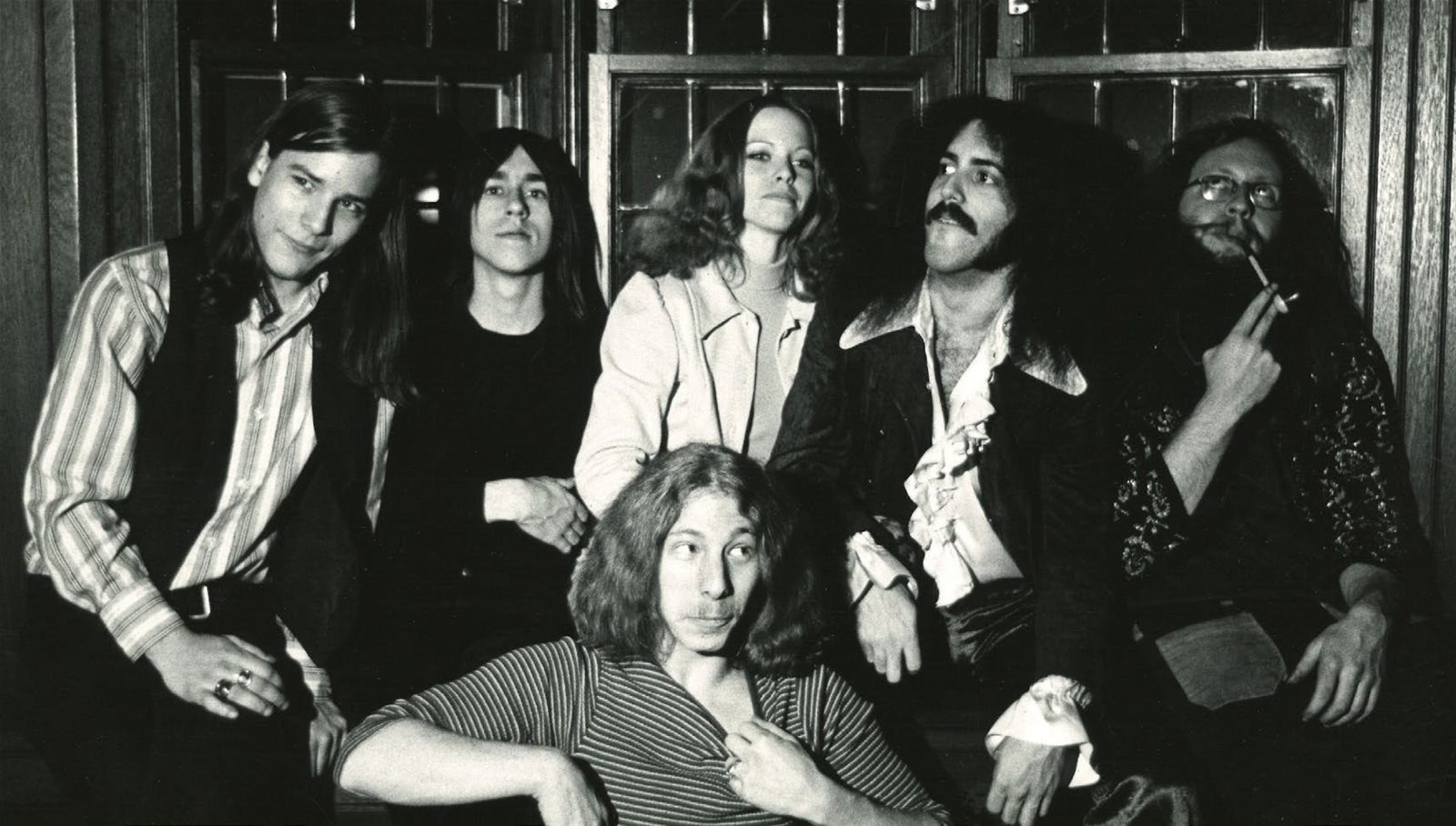David Surkamp’s emotive, stratospherically high voice and aching, melancholic songs distinguished 1975’s Pampered Menial and 1976’s At The Sound Of The Bell, the two revered classics for which his band, Pavlov’s Dog, remain best known. The group formed in St Louis, Missouri in 1972, and their baroque strings, foggy Mellotron and children’s choirs proved the perfect backdrop for Surkamp’s tales of Arthurian legend, lovers distanced by the Colorado gold rush, and the seemingly unattainable Julia, subject of the truly special piano ballad of the same name.
“We’re still doing all those songs in the same keys, you know!” Surkamp tells Prog proudly, prior to heading to Greece, Germany and Belgium for gigs with Pavlov’s Dog’s current line-up. At 72, his voice remains a marvel, but his band have never really eclipsed ‘cult’ status: those in the know adore Pavlov’s Dog, but many don’t know of them at all. Further, a complete absence of 70s film footage of the band has cemented their mystique.

An early portrait of Pavlov’s Dog, 1972.
PRESS/PAVLOV’S DOG ARCHIVES
Chatting from his home in St Louis via video call, Surkamp says he was “too introverted” for the more commercial direction foisted upon him circa his band’s ‘lost’ third LP, Has Anyone Here Seen Sigfried [sic].
“Everything was becoming more corporate and I remember watching Journey go from prog to arena pop,” he explains, “but I would never have been any good at that game…”
It would be 13 years before Pavlov’s Dog returned with 1990’s self-explanatory Lost In America, the interim period marked by rumours that Surkamp had died by suicide. Another two decades went by before 2010’s home studio-recorded Echo & Boo, then something of a late-period flourish: 2014’s The Pekin Tapes and 2018’s Prodigal Dreamer, the latter a return to form.
During our two-hour conversation, Surkamp admits he “doesn’t know how to send an email” and talks fondly of his daughter Saylor, a Kate Bush fan from the age of four, who attended one of Kate Bush’s 2014 Before The Dawn shows at London’s Hammersmith Apollo. He also introduces Prog to his African Grey parrot Mr Bell (“Does he talk? Constantly, mostly about himself”), and speaks movingly about his wife Sara – also a member of Pavlov’s Dog for the last 25 years – who in 2021 sustained a severe head injury after a fall while walking with Surkamp in Munich, Germany.
“I’ve seen that comparison between Geddy Lee’s voice and mine made many times, but I could never hear it. I always thought I sounded more like one of the The Bee Gees.”
“Sara was in a coma for two and a half months, and they had to take her skull out, then put it back in again,” he explains. “She can’t really speak anymore, but she can still sing.” Later, as our interview winds down, Prog is momentarily surprised when Surkamp asks, “Sara is here if you’d like to meet her?” Sara Surkamp comes on camera, says “Hello” and radiates warmth and serenity.
“Isn’t she wonderful?” says her husband with a huge grin.

David Surkamp ended up the lead singer of Pavlov’s Dog “by default”. How fortunate for us all!
PRESS/RUF RECORDS
Fifty-plus years of Pavlov’s Dog – exciting times! Plus you have a brand new album on the way.
Yes,
Wonderlust,
I made the word up [laughs]. It’s been mixed and mastered for release [in 2025]. The opening track,
Anywhere There’s Snow,
is one of two or three songs that have incredible string arrangements by Abbie Steiling, our violinist and principal soloist. Abbie has also written a wonderful song for the album called
Siegfried Calling.
How would you describe
Wonderlust’s
style?
It’s probably closest to At The Sound Of The Bell [1976] or Prodigal Dreamer. And nothing like Lost In America [1990]. It’s pretty romantic. I have this unique way of managing to get a minor chord into even the happiest song – everything I’ve ever done has an edge of sadness. I guess that’s what they call a style, isn’t it?
Are you still using Mellotron?